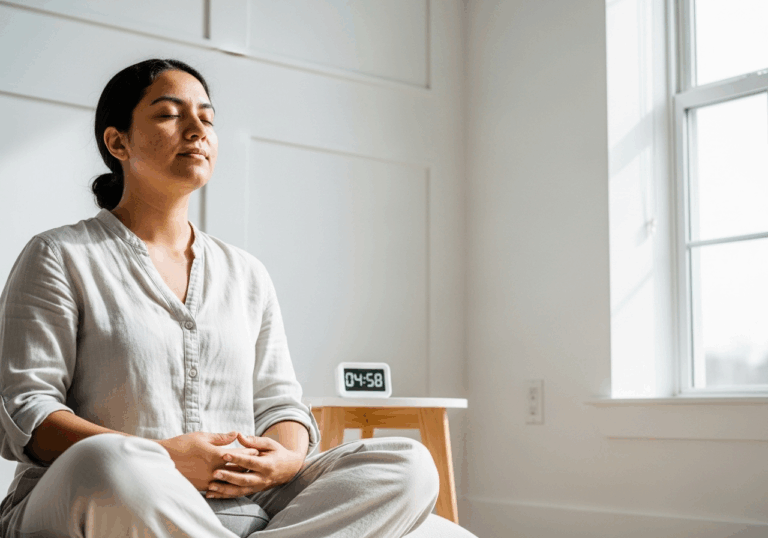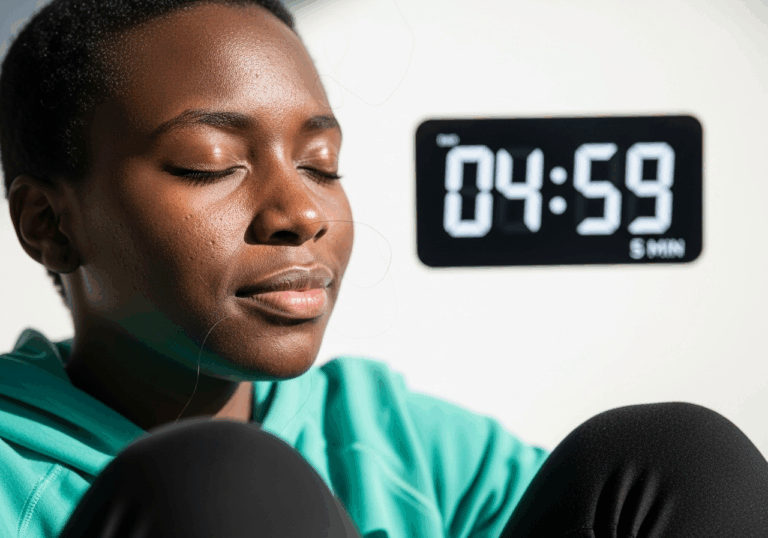Science-Backed Tips
Breathe Your Way to Better Mental Health
Breathwork reduces anxiety and depression symptoms by up to 40%.
📊 Did you know?
💡 Why It Matters
1️⃣
Breathwork can lead to a 40% reduction in depression symptoms, enhancing quality of life.
2️⃣
Improving emotional regulation through breathwork may decrease healthcare costs associated with anxiety and depression.
3️⃣
Regular breathwork practice can contribute to long-term mental health stability.
✅ Try These Micro-Tips
🎯
Practice breathwork for 10 minutes daily to reduce stress levels.
🎯
Engage in guided breathwork sessions twice a week for improved emotional regulation.
🎯
Incorporate breathwork into your morning routine for better mood throughout the day.
🎯
Join a breathwork class once a month to enhance your skills and support mental health.
📚 The study
This means that individuals practicing breathwork can experience up to a 40% decrease in depression symptoms, which can dramatically enhance their overall quality of life.
Furthermore, by improving emotional regulation, breathwork may also help lower healthcare costs associated with anxiety and depression, making it a cost-effective mental health strategy.
Regularly incorporating breathwork into one’s routine can contribute to long-term mental health stability, providing individuals with the tools they need to manage their emotional well-being effectively.
As we continue to explore the benefits of breathwork, it becomes increasingly clear that this simple yet profound practice can serve as a vital component in the journey toward better mental health and emotional resilience.
❓ Frequently Asked Questions ❓
Learn more
What is the effectiveness of breathwork in reducing anxiety?
Breathwork interventions have shown a moderate effect size (g = –0.32) in reducing anxiety symptoms. This suggests that regular practice can significantly help manage anxiety levels.
How does breathwork affect depression symptoms?
Breathwork can lead to a 40% reduction in depression symptoms, enhancing overall quality of life. This improvement is supported by strong statistical evidence from various studies.
What is the impact of breathwork on stress levels?
Breathwork has been found to reduce stress with an effect size of g = –0.35. Engaging in breathwork regularly can help manage stress effectively.
How often should I practice breathwork for optimal results?
Practicing breathwork for 10 minutes daily can significantly reduce stress levels. Additionally, engaging in guided sessions twice a week can improve emotional regulation.
Can breathwork improve emotional regulation?
Yes, breathwork can enhance emotional regulation, which may lead to better management of mood symptoms. Improved emotional regulation can also decrease healthcare costs associated with anxiety and depression.
Is there a recommended routine for incorporating breathwork into my day?
Incorporating breathwork into your morning routine can help set a positive tone for the day. Additionally, joining a breathwork class once a month can enhance your skills and support mental health.
What are the long-term benefits of regular breathwork practice?
Regular breathwork practice can contribute to long-term mental health stability. This consistent engagement helps maintain lower levels of stress, anxiety, and depression over time.
How does breathwork compare to other mental health interventions?
Breathwork interventions yield moderate effects in improving mood and mental health, comparable to other therapeutic approaches. The strong statistical support indicates its reliability as a complementary intervention.
What is the significance of the effect sizes reported in breathwork studies?
The reported effect sizes (g ≈ –0.32 to –0.40) indicate that breathwork has a meaningful impact on reducing symptoms of anxiety, depression, and stress. These findings highlight the potential of breathwork as an effective mental health strategy.
Are there any specific studies supporting the use of breathwork for mental health?
Yes, a meta-analysis of randomized controlled trials (RCTs) has quantified the effectiveness of breathwork for stress, anxiety, and depression. The results provide strong evidence for its role in improving mental health outcomes.





